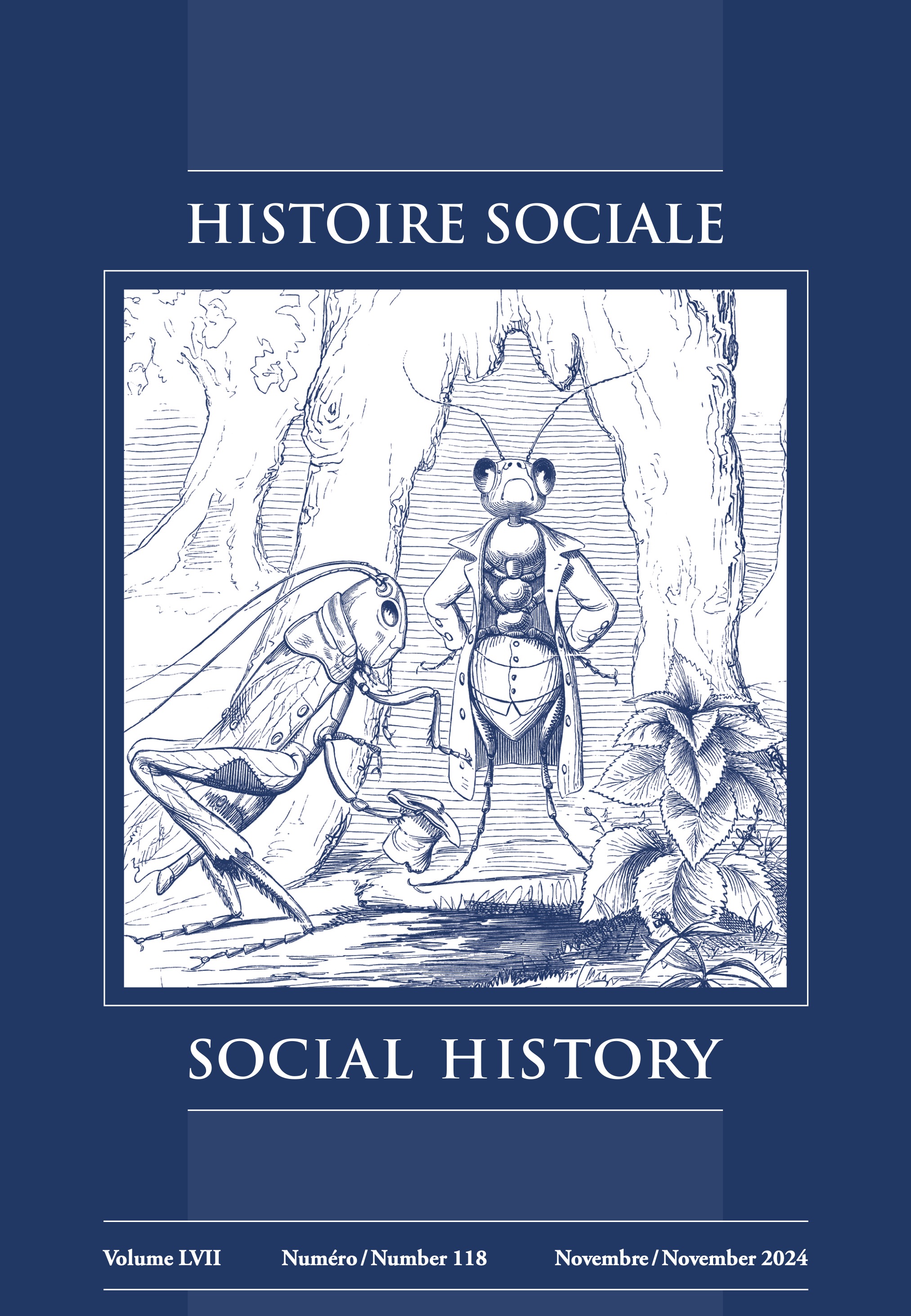L’arnaque du marchand : relations de crédit et administration du chômage durant la Grande Dépression
Abstract
Montbeillard, Quebec, May 1934: a group of unemployed settlers recipient of the Gordon Plan enters the colony’s general store and forces the clerk to “mark” their order. This act is one of last resort, a revolt against the repercussions of inadequate assistance policies and an inability to obtain credit. The tone and language used by the settlers echo those of many other accounts of resistance that we have at our disposal. Often taking more discreet forms, these acts demonstrate a desire to challenge a form of liberalism which, in these remote areas, is expressed with little restraint and results in abuse, exploitation, and favouritism. This article, which focuses on the 1930s, analyzes credit relations in these peripheral areas, where old and new practices introduced by unemployment “vouchers” coexisted. Immersing us in the daily reality of these relationships, it documents the moral economy upheld by families to enforce, through subtle and overt means, the norms that protect them. Grounded in an empirical approach, it provides insight into the complex nature of these norms in communities where proximity fosters both exploitation and domination as well as expressions of solidarity.


